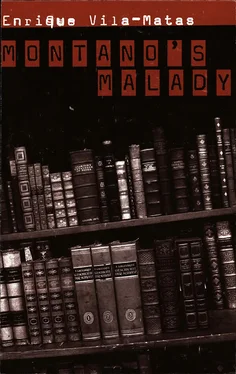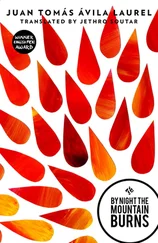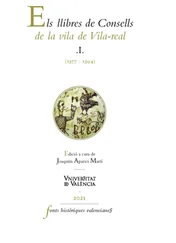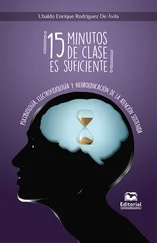In view of the tragedy, Margot strove to reassure me. “The poor thing has a colossal hangover because of New Year’s Eve,” she said. I was incapable of putting two words together, I was not only confused, I felt I had been humiliated in front of my friends. In an attempt to help me, I suppose, Margot changed the subject, redirected the conversation and proceeded to talk about a friend of hers, Mari Pepi Colomer, the Catalan pioneer of female aviation — I had never heard of this lady — she was a woman of Margot’s generation, a compatriot of mine who for a large number of years had been living in England, on her British husband’s country estate, surrounded by lots of horses. “It’s funny,” said Margot, “as a girl I also lived surrounded by horses, there is obviously a relation between these animals and pioneers of aviation. What do you think?” I couldn’t think, I was very disturbed and worried. My disquiet was so apparent that Tongoy, who was wearing a Panama hat, felt obliged to entertain me, he began to remove his hat several times and to greet me with excessive theatricality.
Literarily predisposed as I am, I don’t know how it happened but, seeing Tongoy act like this, I was reminded of the figure of Hölderlin, shut away in the home of the carpenter Zimmer as a result of madness. The story goes that, when a potential customer visited Zimmer, the mad poet would remove his hat and begin to greet the customer with exaggerated reverential gestures, in a way that was completely over the top. Probably all that Hölderlin intended with these gestures was to manifest the true gesture of the poet, for whom the other, whoever it may be, is someone deserving veneration and respect.
It may be said, therefore, that in Tongoy’s excessive theatrics I saw a tribute to Hölderlin and a gesture of friendly respect toward me. But I didn’t say anything, I continued being down at the mouth, I couldn’t understand what had happened to me with Rosa. I didn’t want, however, to arouse pity in my friends and, making a concerted effort, in a humorous tone I proceeded to relate my recent walk around Valparaiso and my strange encounter with the late Charles Baudelaire.
“Well!” Tongoy remarked when I had finished speaking. “It really is amazing, you can’t escape from these two circles, literature and death, it’s amazing, even Baudelaire appears to you, uniting both things in his person. But I think, as I told you yesterday, that, instead of constantly returning to literature and death, you should be less self-centred and concern yourself with the death of literature, a demise that is fast approaching if things continue as bad as they are at the moment.”
That I think about the death of literature, this is what Tongoy was recommending. It struck me as a great idea, and I told him so at lunch today.
The death of literature. There on the Brighton’s terrace, listening to Tongoy’s words, I first looked out over the bay, then at Margot, who was smiling at me — as if to say, “That’s right, the death of literature”—and finally I gazed back at the bay and the horizon and imagined that on the very edge of the horizon I could see some diffuse clouds that announced a severe storm and, with it, the end of books, the triumph of the unliterary, of false writers.
Tongoy, as if reading my thoughts, noticing that I could not take my eyes off the horizon, remarked, “Like the sun, you can’t look the death of literature in the face.” At that moment, more than one of Fellini’s actors, Tongoy resembled a doctor specializing in Montano’s malady, and I thought — I think — that it really wasn’t a bad idea to stop trying to diminish the influence of literature in my life and to pay greater attention to the obvious threat closing in on literature in today’s world.
At this precise moment, something happened that was very important for me. I don’t know how, but I was reminded of a sentence by Nietzsche that I have always read in a thousand different ways, it depends on the meaning I wish to give it each time. It is a sentence I apply to a whole range of circumstances: “One day my name will be associated with the memory of something tremendous — a crisis without equal on earth.”
One cannot go against one’s imagination, and at that instant, on the terrace of the Brighton, I imagined my name and surname in a few years’ time evoking the brutal memory of a crisis in literature that humanity will have overcome — the imagination, when it’s very powerful, is capable of these things — thanks to my heroic conduct, Quixote, spear in hand, against the enemies of the literary.
What is more, I also imagined, or rather I had the strangest thought a madman has ever had in this world — I told myself that, following Tongoy’s instructions, from now on it would be expedient and necessary, both for the increase of my honor and for the good health of the republic of letters, for me to embody literature itself in the flesh and blood, to embody this literature that lives with the threat of death at the start of the twenty-first century: to become literature incarnate and to try to save it from possible extinction by reviving it, just in case, in my own person, my own sorrowful face.
I said nothing at that moment to Tongoy about the thoughts that had just come to me, but I was silently grateful to him for having been able, wisely, to redirect the narrow spectrum of my personal obsessions into a much broader theme: that of the death of literature. I was also grateful to him for having helped me to see that literature could suffer, as I did, from its own Montano’s malady, and it was only logical that the fight against literature’s sickness should take absolute priority over the fight against my own illness, which, all things considered, was so small compared with this larger illness.
That night, in my hotel room, observing my sorrowful face in the mirror, I told myself that at the start of the twenty-first century — obviously I was already thinking like an open book — literature could not breathe at all well, despite the irresponsible optimism of some. Literature, I told myself, is being harried as never before by Montano’s malady, which is a dangerous illness with a fairly complex geographical map, composed of the most diverse and varied provinces or maleficent zones; one of them, the most visible and possibly the most populous, certainly the most mundane and stupid, has been harrying literature since the time writing novels became the favorite sport of an almost infinite number of people. It is not easy for a dilettante to start constructing buildings or, straight away, to make bicycles, without having previously acquired a specific skill; it is the case, however, that everyone, precisely everyone in the world, feels able to write a novel without ever having learned even the most rudimentary tools of the trade; it is also the case that the abrupt rise of such copyists has had a seriously prejudicial effect on readers, nowadays plunged into noticeable confusion.
That night, in my hotel room, I turned all these things over in my mind and mentally thanked Tongoy every quarter of an hour for having moved me, albeit only slightly, away from my literatosis —this is how Onetti terms the obsession for the world of books — and for having reminded me how uncertain the future of literature was. That night, in front of the mirror that reflected my sorrowful face, I ended up concentrating my thoughts on the most mundane and stupid province of literature’s Montano’s malady, and I told myself that this geographical zone had existed for many years; Milton, for example, already spoke of it when he claimed to have visited a nebulous gray zone, a province whose inhabitants were in the habit of crushing the literary tradition’s elegance of spirit and most noble currents. Schopenhauer also seemed to have visited this mundane and stupid province when he said that literature was like life: whichever way one turns, one immediately comes face-to-face with the incorrigible mass of humanity, which multiplies everywhere, filling and staining everything, like flies in summer, and hence the proliferation of bad books, what he termed parasitic tares .
Читать дальше












